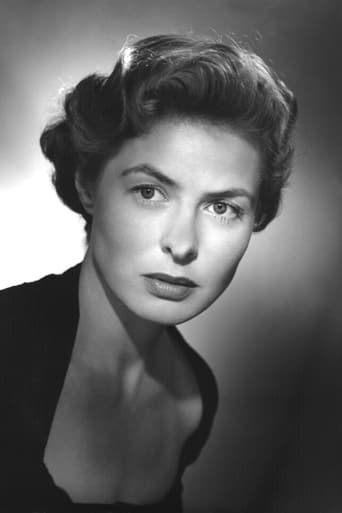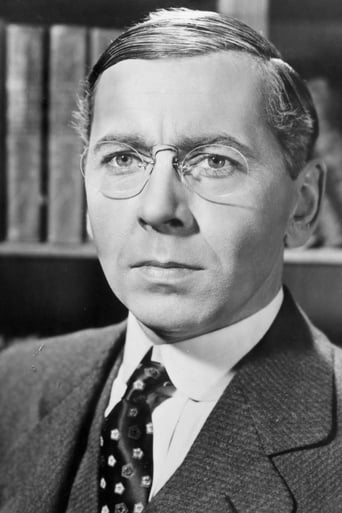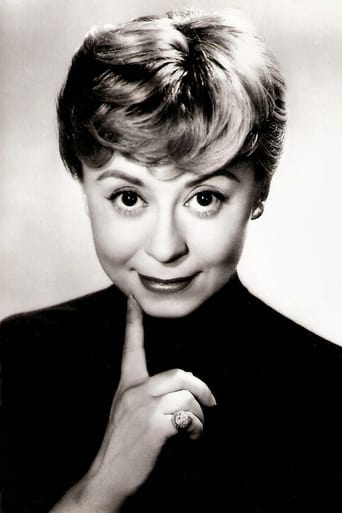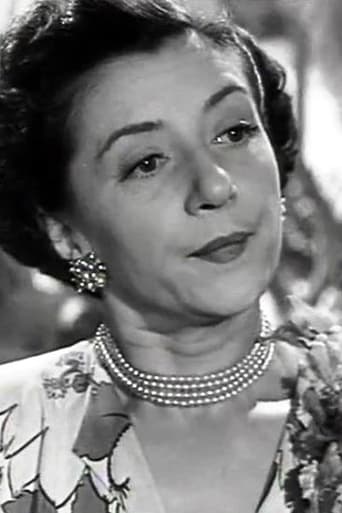CommentsXp
Best movie ever!
Baseshment
I like movies that are aware of what they are selling... without [any] greater aspirations than to make people laugh and that's it.
Plustown
A lot of perfectly good film show their cards early, establish a unique premise and let the audience explore a topic at a leisurely pace, without much in terms of surprise. this film is not one of those films.
Scarlet
The film never slows down or bores, plunging from one harrowing sequence to the next.
jsinoz-js
Do you remember when film featured up close photography, colorless images allowing character interaction to be the foreground, and spoken dialogs with noticeable pauses? Do you remember the last time a film haunted you? Correct… it simply flashed to mind without your invitation! If you can touch any of these viewing memories, this film may be worthy of 108 minutes.Europe '51 is directed by Roberto Rossellini, and stars the stunning master of nuanced emotion, Ingrid Bergman. The 1952 film is set in Rome, post WWII, and features wonderful set designs to distinguish the comfortable life and the dire struggles known to the rest of us.As Irene, Bergman undergoes a metamorphosis that will beckon the dark experience of an unexpected loss of a beloved, and the consequential deep fall into emptiness. Irene is first introduced to us as the consummate hostess with a natural grace and instinctive flair for entertaining. She ignores the voice of her only son repeatedly to fulfill her social obligations. Bonded by their time of closeness under the threat of air raids, Irene is no longer burdened to protect and comfort her son in the present post-war calm. Her 10 year old son, Michele, takes his life after repeated, failed attempts to gain his mother's affection and attention. Irene is paralyzed by the loss, and her husband, George, accommodates her every wish until he comes to think she is having a love affair. The grieving mother finds solace in service to those in need, and her family is bewildered. Her long absences from home, loss of interest in social engagements, and avoidance of her husband leave her family troubled. Irene is transitioning spiritually as a means to heal her loss. She is introduced to a family in need of assistance, and she finds great joy in acts of compassion. Irene assists this family to secure treatment for their sickly son, she then befriends a single mother of six dependents, and tirelessly administers care to a young, isolated prostitute whose life is yielding quickly to tuberculosis. Irene's deeds are in conflict with her social position, and neither her husband nor her mother can compel her return to them. Irene has become a passionate, driven arm of charity in service to her community. She can not return to the life she knew prior to the loss of her young, beloved son. Her family can not understand the sweeping changes Irene has internalized. They confine her to a mental institution. She accepts this placement, and silently radiates a saintly mercy as she encounters the helplessness of the other patients.Fortunately, Rossellini allows you to script your own ending as you look upon Irene from behind the confinement of cell bars at the mental institution. She has been visited by her family, and the family of the sickly boy she assisted. After your viewing, it would be good to hear from you.
Framescourer
I attended a National Film Theatre screening as part of a Bergman season. The film was introduced as one that critical America found hard to bear, not least as the deserting Hollywood star Bergman had an affair with the director, Rossellini.I mention this as the film, which charts the resolution of personal crisis in the life of a bourgeois socialite, is a extremely open and even-handed critique of European social politics. Rossellini presents Irene Girard as having an epiphany in which she appears to be ideologically seduced by an activist of the left. This would have been particularly irritating to the HUAC who were experiencing a rash of films as backlash to their Hollywood blacklist of 1947 and would explain critical hostility to the film and Bergman personally.In fact, It becomes clear that Rossellini manages the extraordinary achievement of charting an ideological third way for Irene. She throws herself into her naive acts of charity somewhat haphazardly (though convincingly). She is subsequently appalled by the 'coal-face' realities of having to work in a factory. Her non-partisan political ineptitude is the reason she is eventually committed to an asylum.For me, Europa 51 is not simply the sad but noble tale of a grieving mother finding a unique way in which to sublimate her grief and guilt. Rossellini has concocted a sophisticated analogy for the poised, unresolvable social position of European society; an analogy that translates into the more digestible position of a single, normal, rational individual. It has the same, marvellous objectivity that one feels when watching the morally neutral Badlands, for example.There are a host of imperfections (not least in the tatty, French sub-titled print we were treated to!) in this film. Only so many can be put down to the rise of the (French) New Wave and the acting can be changeable. Bergman however is very fine, giving a multi-faceted performance that never veers off into incredibility even - especially - at the poignant, potentially confusing final scene/shot. Alexander Knox is also fine. A raw jewel of a movie. 8/10
counterrevolutionary
It's a bit melodramatic, but up until Irene's final conversation with Cassatti the Commie, *Europa '51* is a very interesting film, first about a pampered rich woman's reaction to her son's death, then about the difference between windy Marxist propaganda and real compassion.However, at that point, Rossellini's original idea takes over: He wanted to make a film about what would happen if a truly saintly person ever showed up in the modern world. And he had a very good idea of what would happen--or at least a very insistent one. The people here obviously behave the way they do solely to make the point Rossellini wants to make, even when their behavior doesn't seem very plausible. In defter hands, such manipulation can work. Here, though, you can see the tracks Rossellini has rather clumsily laid down to move the story where he wants it to go.
Kalaman
I saw Roberto Rossellini's "Europa '51" for the first time very recently and I can assure you it is without a question Rossellini's greatest film with Ingrid Bergman surpassing "Viaggio in Italia" and "Stromboli". It may well be Rossellini's greatest and most complex film, though I still have soft spot for "Paisan", "Germania, anno Zero", and "The Rise of Louis XIV"!"Europa '51" is a supremely rich and moving work of art, highlighted by an extraordinary performance by Ingrid Bergman (perhaps her best ever)! It beautifully expresses the uncertainty, the despair,the search for hope at that time in history. Much like Rossellini's neo-realist classics, "Europa '51" shows only facts or raw physical reality, yet throughout the film Rossellini makes the viewer aware of something miraculous or spiritual. Rossellini deftly shows us the process of how a human being can transform from being a careless or ordinary to a gifted saint capable of changing the world. At first, Bergman's Irene is portrayed as hard working mother who has very little care for her son Michele and her people. Irene is shown chatting with her dinner guests who are apparently blind to the realities of outside world. But soon when Michele tries to commit suicide and ultimately dies, she is changed forever. Michele's suicide here is quite different from Edmund's in "Germania, anno Zero": Whereas Edmund's heartbreaking suicide is characterized by a sense of finality and lack of consolation, Michele's suicide in "Europa '51" provokes Irene's journey to sainthood. Irene's progression from ignorance to sainthood is truly a revelation. Rossellini's unique style, the use of eloquent close-ups, or the scene where Irene's face fills the frame as she looks at a female patient - serves as "framing" devices where we see Irene attaining something larger than life. Irene personifies a sense of change and endearment for her people; she suddenly starts to care for humanity, her eyes open to the harshness of the outside world. Though there is an apparent detachment in the drama much like most Rossellini's work, there is no question the viewer is invited to identify with Irene and share the development of her consciousness.To me, the ending is hopeful and miraculous. Irene is behind bars, her friends come and recognize her as a saint. It is a shot full of beauty and eloquence. This is the only Rossellini film I saw that made me cry. I hope many people will see it and be moved by it as much as I did.






